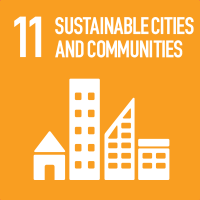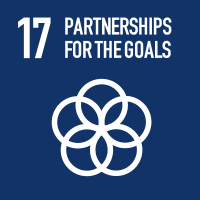Studying at the University of Verona
Here you can find information on the organisational aspects of the Programme, lecture timetables, learning activities and useful contact details for your time at the University, from enrolment to graduation.
Study Plan
This information is intended exclusively for students already enrolled in this course.If you are a new student interested in enrolling, you can find information about the course of study on the course page:
Laurea in Servizi giuridici per imprese, amministrazioni e no-profit - Enrollment from 2025/2026The Study Plan includes all modules, teaching and learning activities that each student will need to undertake during their time at the University.
Please select your Study Plan based on your enrollment year.
1° Year
| Modules | Credits | TAF | SSD |
|---|
2° Year activated in the A.Y. 2024/2025
| Modules | Credits | TAF | SSD |
|---|
1 module between the following1 module between the following3° Year It will be activated in the A.Y. 2025/2026
| Modules | Credits | TAF | SSD |
|---|
3 modules among the following| Modules | Credits | TAF | SSD |
|---|
| Modules | Credits | TAF | SSD |
|---|
1 module between the following1 module between the following| Modules | Credits | TAF | SSD |
|---|
3 modules among the following| Modules | Credits | TAF | SSD |
|---|
Legend | Type of training activity (TTA)
TAF (Type of Educational Activity) All courses and activities are classified into different types of educational activities, indicated by a letter.
Comparative Legal Systems (2023/2024)
Teaching code
4S009846
Academic staff
Coordinator
Credits
6
Language
Italian
Scientific Disciplinary Sector (SSD)
IUS/02 - COMPARATIVE PRIVATE LAW
Period
2° periodo lezioni (2A) dal Feb 12, 2024 al Mar 22, 2024.
Courses Single
Authorized
Learning objectives
The course is intended to provide the student with the knowledge of the basics of the comparative method, which is key to understand the phenomena of contemporary societies as well as the categories, meaning, functioning of private and public law tools.
At the end of the course, the student will be able to elaborate on public and private law rules and notions, applying the comparative methodology, in both written and oral forms, developing proper reasoning and argumentation, using an appropriate and specific vocabulary, reaching independent judgement on actual cases.
Prerequisites and basic notions
No prior knowledge is required.
Program
LECTURED TEACHING (5 credits, 30 hours) i) In the first part (public affairs area), after an introduction on the method, functions and methods of legal comparison, the course deals with the concepts of legal family and legal tradition. The concept of the source of law is then explored in depth and the main manifestations of the legal phenomenon in the various families and traditions previously analyzed will be illustrated (forms of State, forms of government, ways of producing the legal phenomenon). ii) In the second part (private sector), the comparison will serve to understand the value and critical issues of the classifications of today's legal systems, also from an empirical perspective (e.g. through the use of numerical indicators). Particular attention is paid to the circulation of models and rules between the different systems (legal transplants) and in a global perspective. Some particularly significant institutions will be analyzed for their systemic scope (trust and trust; typical and atypical nature of the offence; codifications). WORKSHOPS (1 CFU, 12 hours). Two laboratories, one in the public sector and one in the private sector, lasting 6 hours each, are both dedicated to the presentation of a group report on a topic of your choice (these are specific topics not covered in class, but inherent to the lectures attended) . The groups are made up of approximately 8-12 students and remain the same both for the presentation relating to the first part of the course (publicity) and for that relating to the second part of the course (private). Group work can be enhanced with the attribution of a maximum of 2 points for each presentation (valid for all the students who make up the group); the score will then be added to the final exam evaluation.
Bibliography
Didactic methods
The course (42 hours in total) includes frontal lessons for 30 hours (supported by the use of ppt presentations) and two laboratories for a total of 12 hours.
The teaching methods are distinguished between attending and non-attending students. Students who attend 80% of the lessons are considered ATTENDING.
i) ATTENDING students:
The frontal classes provide for the active participation of the students and the constant discussion of the topics covered.
The laboratories are structured in the form of group work with the presentation of a chosen topic.
The program can be prepared on the notes of classes and laboratories, as well as on the materials made available by the professors in the e-learning platform.
ii) NON-ATTENDING students:
The teaching methods consist in providing support from the professors for an updated textbook study.
In particular, students are required to bring the following program to the exam site:
a) G. Ajani, D. Francavilla, B. Pasa, "Diritto comparato. Lezioni e materiali" (Giappichelli, 2023):
- Volume I, chaps. 1-2-3;
- Volume II, chaps. 1-2-3-5-6-7-8.
iii) ERASMUS students:
Students are invited to contact the professors (giorgia.guerra@univr.it; enrico.andreoli@univr.it) for the precise definition of teaching methods.
Learning assessment procedures
The assessment of learning outcomes includes:
a) for ATTENDING students: semi-structured written test (multiple-choice and open-ended answers);
b) for NON-ATTENDING students: oral test.
The tests for ATTENDING and NON-ATTENDING students will cover the respectively specified examination program.
Evaluation criteria
Assessment will be through the following criteria:
a) the depth and breadth of knowledge gained;
b) ownership of language;
c) analytical and argumentative ability;
d) the ability to critically reflect and connect the topics covered.
The final evaluation is expressed in thirtieths.
The final grade is made up on the basis of the verification of the criteria mentioned (approximately 1/4 for each criterion).
Attending students participating in laboratories may be awarded a bonus of up to a maximum of 2 points for the group activity.
Exam language
Italiano




